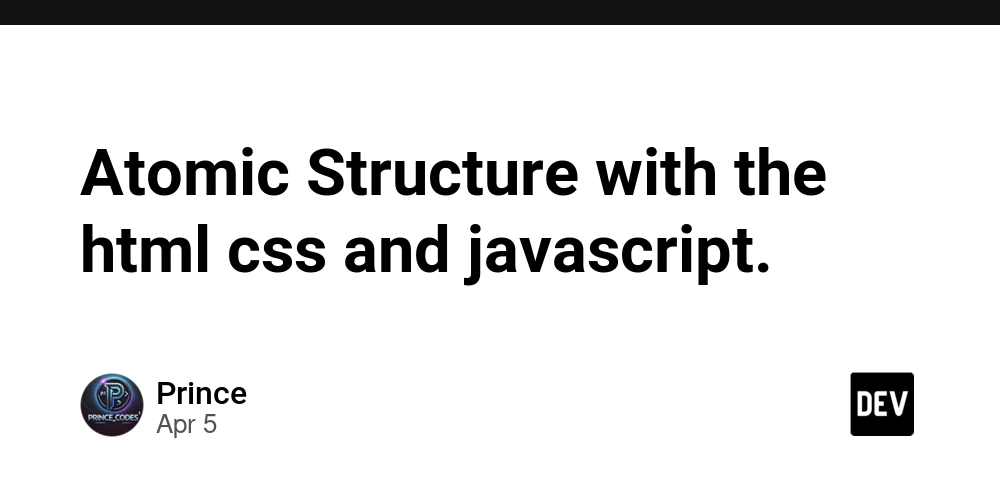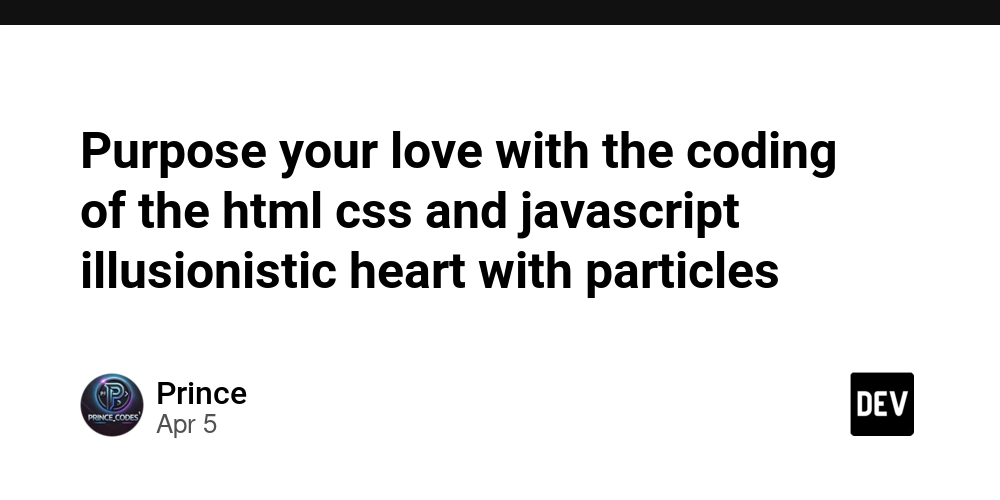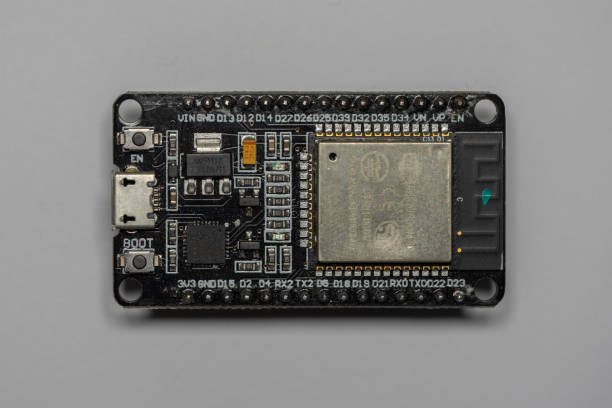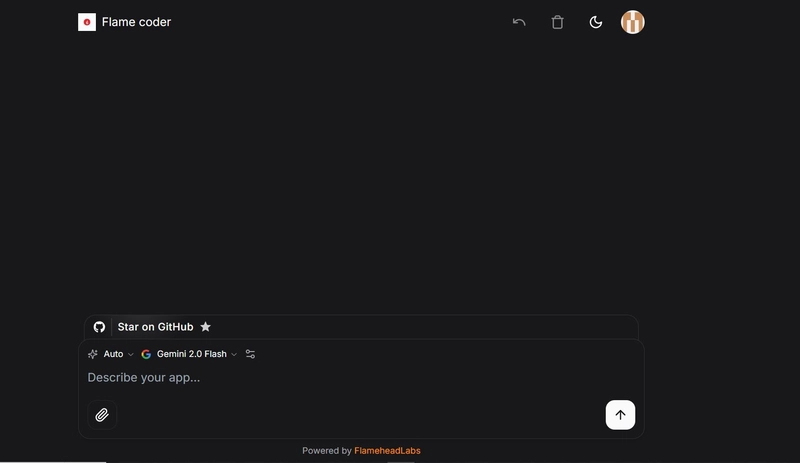Bolstering Open Source with GitHub Sponsors: The Impact of Matching Funds
Abstract This post dives into the transformative power of the GitHub Sponsors matching fund and its role in bolstering open source sustainability. We explore the origins of GitHub Sponsors, describe its matching fund concept, and detail its benefits to developers, communities, and corporate backers alike. Alongside a background on open source funding, we discuss real-world applications, challenges in scaling support, and future innovations—including blockchain integration—to create a robust and dynamic open source ecosystem. Links to authoritative resources such as GitHub Sponsors, Patreon, and several insightful posts on licensing and interoperability from License Token and Dev.to are woven throughout, offering further reading and technical depth. Introduction The open source landscape has long been the bedrock of software innovation, yet financial sustainability remains a challenge faced by many developers and projects. With the advent of programs like GitHub Sponsors, a novel funding mechanism has taken shape that supports developers on an ongoing basis. In particular, the introduction of matching funds is revolutionizing how contributions are maximized and projects are sustained. This blog post not only reviews the key aspects of the GitHub Sponsors matching fund but also provides broader context and deeper insights into open source funding models, community impact, and future trends. Background and Context Open source has historically thrived on the generosity of communities and the passion of individual contributors. However, as projects have grown in complexity, so has the financial gap that can hinder innovation. Traditional funding methods—like grants and corporate sponsorships—do not always meet the recurring costs that developers face. Recognizing this need, GitHub introduced its Sponsors platform in May 2019 as a more democratic approach to funding, akin to platforms such as Patreon. The idea is simple yet powerful: developers receive direct, recurring financial support from individual sponsors. Over time, this shift has significantly increased recognition, morale, and financial stability for many open source projects. In an ecosystem where volunteer work is commonplace, GitHub Sponsors emphasizes that fair compensation and acknowledgment matter. Core Concepts and Features One of the standout innovations in this new funding model is the matching fund initiative. Below are some key features of this model: Dollar-for-Dollar Matching: Every contribution made by an individual sponsor is matched by a corresponding fund, which can effectively double the financial support flowing to a developer or project. Increased Visibility and Recognition: Projects benefiting from matching funds are highlighted on the platform, drawing more attention and potentially a larger pool of sponsors. Community-Driven Funding: Unlike traditional funding models, GitHub Sponsors leverages a community-based approach that encourages direct support from people who use and value open source projects. Corporate Involvement: Many companies that depend on open source software have begun to see sponsorship as an investment rather than charity, setting new standards for corporate social responsibility. The following table summarizes these core concepts: Feature Description Direct Financial Support Recurring monthly sponsorships from community members directly to developers. Matching Funds Contributions are doubled through matching, resulting in greater impact with each donation. Community Engagement Enhanced visibility for projects boosts community participation and delivers recognition to developers. Corporate Investment Encourages companies to invest in open source as a sustainable resource integral to their own operations. Scalability & Fairness Ongoing refinement of criteria to ensure equitable distribution of the matching fund to promising, yet underfunded, projects. By offering these features, GitHub Sponsors has set in motion an ecosystem that not only supports the financial needs of developers but also drives innovation through continuous engagement and relevant, real-time funding support. Applications and Use Cases The matching fund initiative has already shown tangible real-world impacts in various realms of open source development. Consider these examples: 1. Data Science and Analytics Frameworks A modest analytics library essential for data science applications has benefited from the matching funds. With the extra financial push: Bugs have been squashed more quickly. New features and functionalities have been expanded. Overall usage of the framework has soared, highlighting the reciprocal relationship between funding and project improvements. 2. Climate and Environmental Projects An open source climate project, previously struggling with funding constraints, experienced a turnaround after gaining traction thr
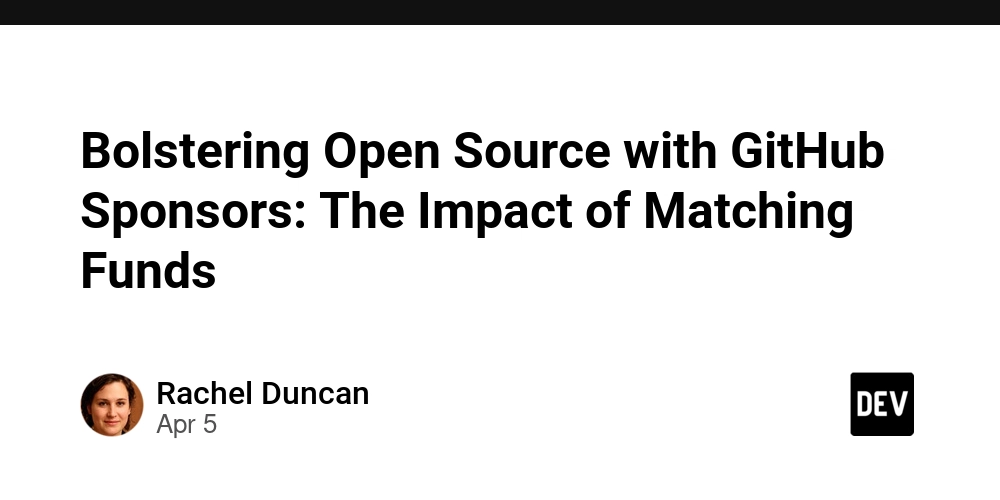
Abstract
This post dives into the transformative power of the GitHub Sponsors matching fund and its role in bolstering open source sustainability. We explore the origins of GitHub Sponsors, describe its matching fund concept, and detail its benefits to developers, communities, and corporate backers alike. Alongside a background on open source funding, we discuss real-world applications, challenges in scaling support, and future innovations—including blockchain integration—to create a robust and dynamic open source ecosystem. Links to authoritative resources such as GitHub Sponsors, Patreon, and several insightful posts on licensing and interoperability from License Token and Dev.to are woven throughout, offering further reading and technical depth.
Introduction
The open source landscape has long been the bedrock of software innovation, yet financial sustainability remains a challenge faced by many developers and projects. With the advent of programs like GitHub Sponsors, a novel funding mechanism has taken shape that supports developers on an ongoing basis. In particular, the introduction of matching funds is revolutionizing how contributions are maximized and projects are sustained. This blog post not only reviews the key aspects of the GitHub Sponsors matching fund but also provides broader context and deeper insights into open source funding models, community impact, and future trends.
Background and Context
Open source has historically thrived on the generosity of communities and the passion of individual contributors. However, as projects have grown in complexity, so has the financial gap that can hinder innovation. Traditional funding methods—like grants and corporate sponsorships—do not always meet the recurring costs that developers face. Recognizing this need, GitHub introduced its Sponsors platform in May 2019 as a more democratic approach to funding, akin to platforms such as Patreon.
The idea is simple yet powerful: developers receive direct, recurring financial support from individual sponsors. Over time, this shift has significantly increased recognition, morale, and financial stability for many open source projects. In an ecosystem where volunteer work is commonplace, GitHub Sponsors emphasizes that fair compensation and acknowledgment matter.
Core Concepts and Features
One of the standout innovations in this new funding model is the matching fund initiative. Below are some key features of this model:
- Dollar-for-Dollar Matching: Every contribution made by an individual sponsor is matched by a corresponding fund, which can effectively double the financial support flowing to a developer or project.
- Increased Visibility and Recognition: Projects benefiting from matching funds are highlighted on the platform, drawing more attention and potentially a larger pool of sponsors.
- Community-Driven Funding: Unlike traditional funding models, GitHub Sponsors leverages a community-based approach that encourages direct support from people who use and value open source projects.
- Corporate Involvement: Many companies that depend on open source software have begun to see sponsorship as an investment rather than charity, setting new standards for corporate social responsibility.
The following table summarizes these core concepts:
| Feature | Description |
|---|---|
| Direct Financial Support | Recurring monthly sponsorships from community members directly to developers. |
| Matching Funds | Contributions are doubled through matching, resulting in greater impact with each donation. |
| Community Engagement | Enhanced visibility for projects boosts community participation and delivers recognition to developers. |
| Corporate Investment | Encourages companies to invest in open source as a sustainable resource integral to their own operations. |
| Scalability & Fairness | Ongoing refinement of criteria to ensure equitable distribution of the matching fund to promising, yet underfunded, projects. |
By offering these features, GitHub Sponsors has set in motion an ecosystem that not only supports the financial needs of developers but also drives innovation through continuous engagement and relevant, real-time funding support.
Applications and Use Cases
The matching fund initiative has already shown tangible real-world impacts in various realms of open source development. Consider these examples:
1. Data Science and Analytics Frameworks
A modest analytics library essential for data science applications has benefited from the matching funds. With the extra financial push:
- Bugs have been squashed more quickly.
- New features and functionalities have been expanded.
- Overall usage of the framework has soared, highlighting the reciprocal relationship between funding and project improvements.
2. Climate and Environmental Projects
An open source climate project, previously struggling with funding constraints, experienced a turnaround after gaining traction through GitHub Sponsors. This project now:
- Attracts interest from major environmental groups.
- Is gaining corporate sponsorship that effectively doubles the available resources.
- Is leveraging its newfound visibility to drive further community contributions.
3. Corporate and Community-Driven Solutions
Many companies now see the advantages of supporting key open source projects that underpin their own technological infrastructure. Corporations view financial support as a strategic investment. For example, the matching fund program’s influence extends to fostering initiatives in:
- Blockchain integration: Enhancing interoperability and security for open source projects—see The Future of Open Source with Blockchain Integration.
- Arbitrum and smart contracts: Projects on platforms such as Arbitrum benefit from better community governance and transparency. For more related insights, check out Arbitrum and Blockchain Interoperability and Arbitrum and Smart Contract Audits.
A bullet list of benefits for both communities and developers includes:
- Enhanced Developer Compensation: Ensures developers are rewarded for their innovative contributions.
- Project Longevity: Sustained funding models reduce the risk of project abandonment.
- Community Expansion: Increased visibility and recognition attract new contributors and partnerships.
- Corporate Engagement: Companies actively invest in technologies crucial for their operations.
- Innovation Boost: More resources allow for faster iteration and experimentation.
Challenges and Limitations
Despite its notable successes, the matching fund initiative is not without its challenges. A deep understanding of these limitations prepares the community for better future innovations:
Funding Scalability
- Resource Distribution: As more projects apply and require support, it becomes increasingly complex to allocate matching funds equitably. Balancing high-profile projects with smaller, promising initiatives is a key concern.
- Sustainability of Funds: The matching fund itself must be continuously replenished, often relying on corporate donors and private investors who may have shifting priorities.
Adoption and Integration
- Awareness Among Developers: Some open source maintainers are either unaware of such funding opportunities or are skeptical about integrating sponsorship into their workflow. Educational outreach remains crucial.
- Dependency Risk: Over-reliance on sponsorship and matching funds could lead to complacency in seeking alternative or diverse funding streams. This challenge requires developers to cultivate multiple revenue sources for long-term viability.
Technical and Operational Constraints
- Implementation Complexity: Integrating matching funds into existing sponsorship platforms requires robust technical infrastructure. This needs to ensure transparency, fairness, and minimal administrative friction.
- Community Governance: As projects grow, maintaining coherent governance structures to oversee fund distribution becomes essential. Mismanagement could lead to project burnout or controversy.
For further reading on overcoming these challenges, please check out Sustainable Funding for Open Source and insights from Corporate Sponsorship Models.
Future Outlook and Innovations
The future of open source funding appears bright yet demands continuous innovation. Here are some trends and predictions shaping this landscape:
Blockchain and Tokenization
The integration of blockchain technology is poised to enhance transparency and security in open source funding. With tokenization, developers can potentially receive microtransactions directly through smart contracts. This could further streamline funding while ensuring that every transaction is verifiable and tamper-proof. Explore additional perspectives on this topic in The Future of Open Source with Blockchain Integration.
Enhanced Corporate Partnerships
Corporations are likely to increase their involvement, treating sponsorship as part of their strategic investments. As more businesses understand the interdependency between their technological infrastructure and open source, more robust and innovative funding initiatives are anticipated.
Improvement in Matching Fund Mechanisms
With continuous refinements, the matching fund rules will likely evolve to ensure even distribution, address challenges of scale, and incorporate benefits such as educational resources and community mentorship. Future iterations might include:
- Dynamic Matching Ratios: Adjusting ratios based on project size, community impact, and existing funding gaps.
- Decentralized Governance Models: Empowering communities to vote on fund allocation, thereby increasing fairness and transparency. The community governance aspect is explored in detail through resources like Arbitrum and Community Governance.
Integration with Decentralized Finance (DeFi)
Many of the future innovations may see the convergence of open source funding with DeFi protocols. This could provide automated liquidity pools for projects, innovative staking mechanisms, and revenue-sharing through tokenized economics. The synergy between open source and decentralized finance is already beginning to take shape in several projects.
Community-Driven Initiatives Explored on Dev.to
The ongoing dialogue on platforms like Dev.to sheds light on the critical intersection of open source funding and community empowerment. For instance, posts such as Elon Musk and Open Source: Redefining Innovation and Open Source Project Sponsorship Schemes Fueling Innovation provide compelling narratives on how community-driven funding is not only a financial model but also a cultural shift in the tech world.
Summary
The GitHub Sponsors matching fund initiative represents a pivotal transformation in the realm of open source. By effectively doubling the financial contributions to projects, it has provided much-needed relief and fresh momentum for developers and maintainers alike. The initiative plays a vital role in enhancing visibility, fostering corporate investment, and supporting community engagement.
Looking forward, as challenges such as scalability and dependency are addressed, the evolution of funding via matching funds—combined with blockchain integration and innovative community governance—will secure a thriving future for open source projects. Whether it’s an analytical framework, a climate-focused initiative, or a corporate-sponsored tool, the promise of sustainable funding paves the way for rapid innovation and robust community participation.
For a deeper dive into the subject, readers are encouraged to explore additional resources:
- GitHub Sponsors
- What is GitHub Sponsors?
- Open Source Funding Opportunities
- Open Source Funding Success Stories
- Corporate Sponsorship Models
Furthermore, insights from the following authoritative sources are recommended:
- Arbitrum and Blockchain Interoperability
- Arbitrum and Community Governance
- Arbitrum and Smart Contract Audits
- Arbitrum and Open Source Contributions
- Arbitrum and Scaling Solutions
In addition, the broader discussion on open source and funding has been enriched on platforms like Dev.to. Notable reads include:
- Unpacking the MIT License: Freedom, Flexibility, and Fair Code
- Elon Musk and Open Source: Redefining Innovation Through Collaboration
- Open Source Project Sponsorship Schemes Fueling Innovation and Sustainability
These sources and insights further underscore the importance of robust, community-driven funding models that are central to open source growth and sustainability.
In conclusion, the GitHub Sponsors matching fund is not just a funding mechanism but a leap forward in ensuring that open source projects remain dynamic, resilient, and capable of driving global innovation for years to come.
Open source is more than just code—it’s a community, a movement, and a testament to collaborative innovation. With initiatives like matching funds, the future of open source shines brighter than ever.








![[FREE EBOOKS] The Kubernetes Bible, The Ultimate Linux Shell Scripting Guide & Four More Best Selling Titles](https://www.javacodegeeks.com/wp-content/uploads/2012/12/jcg-logo.jpg)
